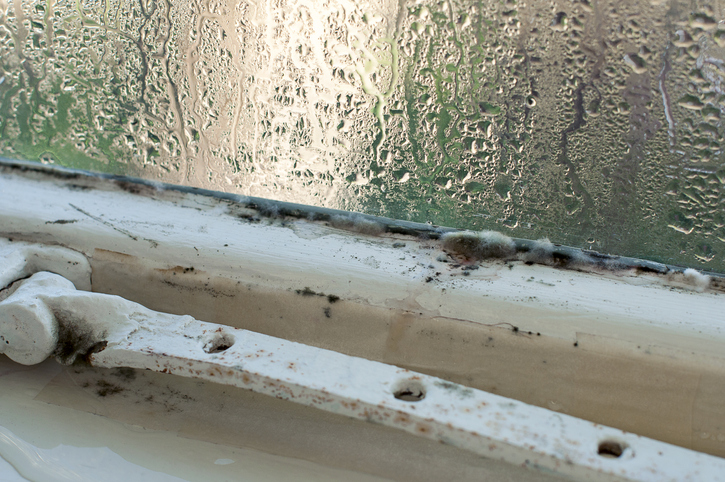Two severe maladministration findings for Onward Homes on damp and mould case
13 October 2022
The Ombudsman made two findings of severe maladminstration for Onward Homes’ failings in handling a resident’s complaint about damp and mould caused by rotten window frames and her request for compensation due to damaged belongings.

We have made two findings of severe maladminstration for Onward Homes’ failings in handling a resident’s complaint about damp and mould caused by rotten window frames and her request for compensation due to damaged belongings.
The Manchester resident had been reporting damp and mould in her bedroom from early 2020, caused by rotten window frames in her flat. She said she was not sleeping in the bedroom and had got into debt by buying a dehumidifier. The landlord carried out mould treatment and responded to the resident’s complaint saying it would consider her request for new windows.
At the end of 2020 the resident contacted the landlord about damp and mould in her bedroom again, asking it to repair or replace the windows. The landlord said it was a case of condensation that had not been managed by the resident. It said she was responsible for managing the property in a reasonable manner including washing the mould. In its final response, the landlord said it could not offer an immediate replacement, offered to arrange a further inspection and later found that the windows were beyond repair.
Our investigation found that there was an unreasonable delay when the resident raised further concerns, due to the impact of the damp and mould. There was no evidence that it considered if the property was uninhabitable and no evidence to support the landlord’s finding that the condensation was due to the resident’s inaction. This was unreasonable as it had concluded that the windows were beyond repair.
It was also unreasonable that the landlord did not respond to the resident’s request for compensation for items damaged that she made at each stage of the complaint process, even though its policy sets out an approach for considering claims for damaged items.
We ordered the landlord to pay £2,175 compensation, carry out a survey to determine if the property is habitable and, if not, to consider moving the resident or offering a rent reduction until the windows are replaced.
Following our investigation, the landlord’s learning from this case includes making some process changes to address the findings and doing more to support residents where repairs or reinvestment are delayed.
Richard Blakeway, Housing Ombudsman, said: “The landlord failed to demonstrate that it adequately investigated the resident’s concerns and instead stated that it was the resident’s responsibility to remove the condensation in the property.
“Given the landlord’s serious failings in this case we ordered it to review its approach in line with our Spotlight report on damp and mould. It should consider the advice offered to residents when they report concerns, and how it assesses the factors contributing to any condensation build up.
“The landlord also repeatedly failed to address a key aspect of the complaint at all points of the complaint process, by not providing a response to the resident’s request for compensation.
“Following our decision, I welcome the landlord’s response on its learning from this case and the changes being made to improve its service. I would encourage other landlords to consider the learning this case offers for their own services.”
In cases of severe maladministration we invite the landlord to provide a short statement on the lessons learned following the decision.
Onward learning statement:
We are very sorry for the difficulties our resident has experienced in this case. We have apologised to our resident and fully complied with the Ombudsman’s order.
Several lessons have been highlighted. Given the period of time between the events and findings, many improvements were already in train but there are opportunities for further learning:
- We will always carry out a formal survey to assess fitness for habitation where damp and mould are the cause of a complaint. We previously took action by exception (as in the current case where the property was correctly deemed to be fit for habitation) but we will now formally assess and document the process in every case.
- We will do more to support residents where repairs or reinvestment are delayed. The property is Victorian Grade II listed and preparation for investment over the last two years took longer than we would have expected. Full refurbishment works are now on site and we are making a contribution to residents’ heating costs until work is completed. Whilst this was a complex refurbishment we recognise that we let the wider investment decisions and timescales cloud our focus on this complaint.
- On complaints handling, changes have been made to clarify the stages of a complaint and in relation to awarding specific compensation rather than offering a global amount.
We welcome the opportunity to learn from the judgement in this case and will use it to improve the service we give to our customers.
